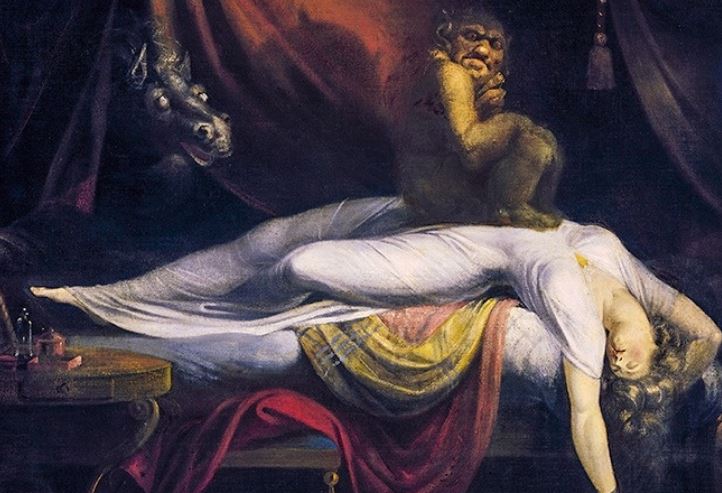6. You’re paralyzed.
Speaking of REM sleep: During this phase, you literally cannot move a muscle. Only the ones that control your eyes (hence the name rapid eye movement sleep) and your breathing are not paralyzed. Muscle paralysis is the body’s way of preventing you from kicking in the World Cup–winning goal, serving a knuckle sandwich to that intruder who turns out to be your unsuspecting and undeserving spouse beside you, or otherwise acting out your weirdest dreams. The paralysis is (obviously) temporary, but it can last up to about 20 minutes. Your once-slow-and-steady breathing and heart rate will also become a little less regular and a little more erratic during REM sleep, Barone says.
7. You pump out growth hormones…
No, not the performance-enhancing-drug kind of growth hormone. Even if you’re not growing taller, you’re always growing: building muscle cells after a tough workout, healing a cut from dicing onions for dinner. Our bodies make a host of different growth hormones during NREM sleep that we need throughout our lives, not just during developmental periods, Veasey says.
One of the clearest ways to see this process at work, though, is among children with sleep apnea, a disorder that causes a person to stop breathing throughout the night (if that sounds scary, it’s because it is). A common cause of the condition in kids is extra-large tonsils, so some who really can’t get any rest will get theirs removed. Many of these youngsters are short for their age—until they can finally sleep. Their tonsils are removed, their sleep apnea is reversed, and suddenly they shoot up to a normal height, Barone says, once they’re finally getting the growth hormones they so desperately needed.
8. …and regulate your hunger hormones.
If a frosted donut has ever looked particularly tasty after a night spent tossing and turning, at least it’s not just you: Most people reach for higher-calorie foods (and more of ’em) when they’ve logged too few hours of sleep, which can in turn, of course, lead to weight gain. Researchers believe that the hunger-regulating hormones leptin and ghrelin get out of whack when we don’t sleep well, Barone says. (The Hormone Reset Diet can balance your hormones and help you lose up to 15 pounds in just 3 weeks.)





































Discussion about this post